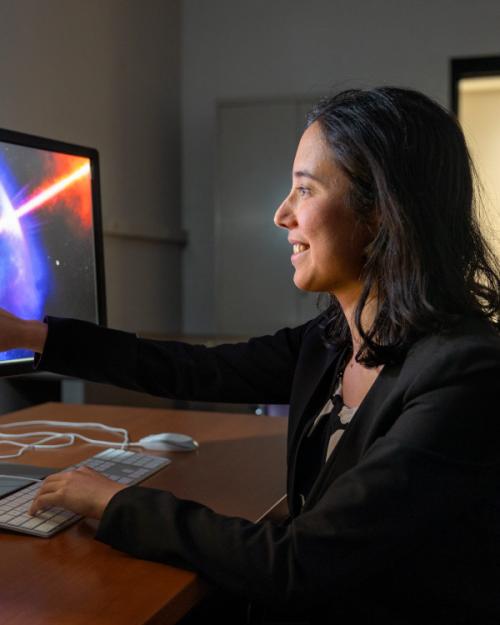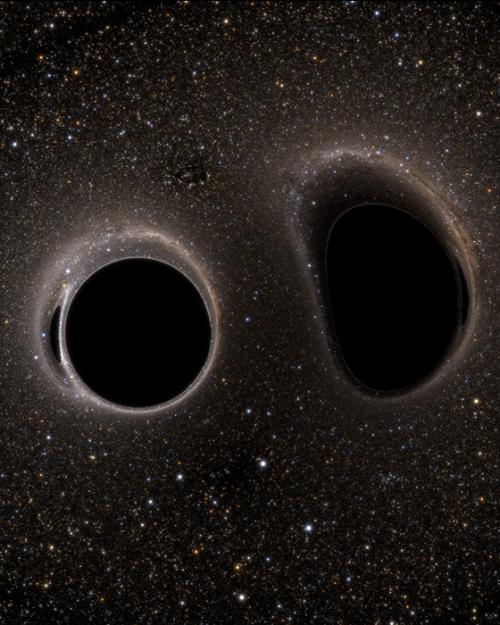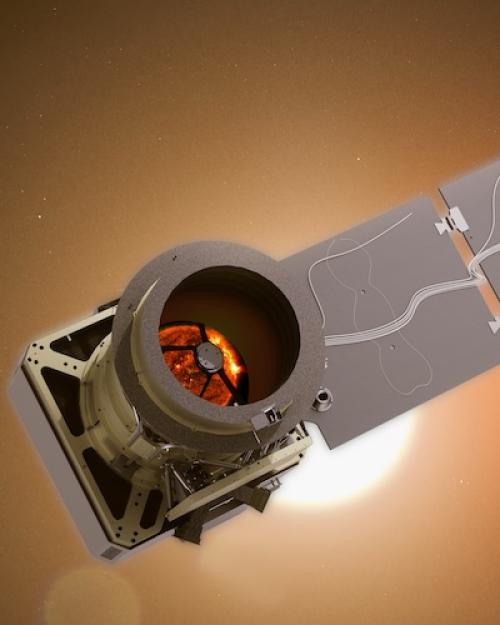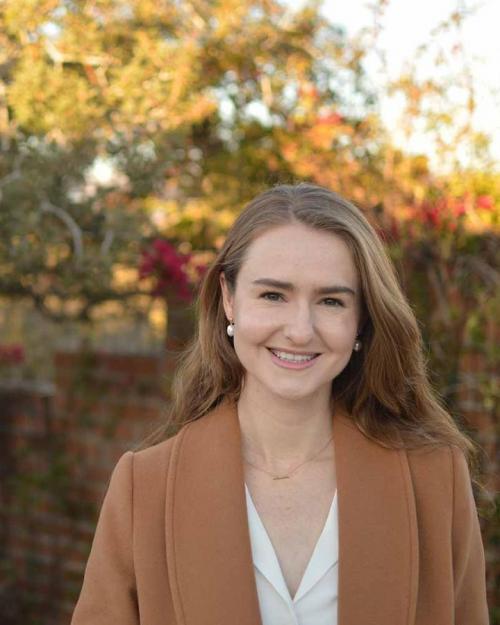The ocean on Europa, one of Jupiter’s four Galilean moons, contains sodium chloride – common table salt.
Samantha Trumbo ’13, a doctoral student in planetary science at the California Institute of Technology, will follow up on this breakthrough discovery, which she made using data from the Hubble Space Telescope, as a 51 Pegasi b Fellow hosted by the astronomy department in the College of Arts and Sciences (A&S).
“For so long, Europa appeared as just a tiny dot in the sky, but it’s really a world in and of itself,” said Trumbo, who studied astronomy and biological sciences in A&S as an undergraduate. “Its subsurface ocean of liquid water could be potentially habitable. That’s what drove my research – I wanted to understand that ocean environment.”
Trumbo is one of eight 51 Pegasi b Fellows named in 2021. Mentored by Jonathan Lunine, the David C. Duncan Professor in the Physical Sciences and chair of astronomy, she will examine the surface of Europa and the other icy moons of Jupiter to gain insight on the geochemical nature, evolution and diversity of ocean worlds.
“Samantha Trumbo is a leading expert in the observational characterization of objects in the solar system, in particular icy moons that could harbor life,” said Nikole Lewis, assistant professor of astronomy and deputy director of the Carl Sagan Institute. “Her mentor, Jonathan Lunine, is a world-renowned expert in solar system exploration and astrobiology. Their collaboration will be at the intersections of observations and theory, which is fertile ground for new ideas about the possibility of life to exist elsewhere in our solar system to grow.”
Established in 2017, the Heising-Simons Foundation 51 b Pegasi b Fellowship is named for the first exoplanet discovered orbiting a Sun-like star. Cornell was selected to be a potential host institution in 2020, marked by the arrival of two 51 Pegasi b fellows.
Emily First, an expert on Earth geology, is working with Esteban Gazel, associate professor of Earth and atmospheric sciences in the College of Engineering. Eileen Gonzales, an expert on brown dwarf stars, is working with Lewis.
“Cornell Astronomy is a relatively unique department in that we have community members pursuing both planetary science and astrophysics research. This makes the department a perfect place for planetary astronomy research,” Lewis said. “Our two current 51 Pegasi b Fellows, Dr. Gonzales and Dr. First, are already bringing their unique perspectives to topics at the intersections of planetary science and astrophysics.”
During her fellowship at Cornell, Trumbo will use world-class telescopes to assemble more links between the surface compositions of icy worlds and the chemistry of their internal oceans.
She will focus on the three icy Galilean moons – Europa, Ganymede and Callisto – and will compare their surfaces to gain insight on how their divergent histories may have influenced their ocean environments.
Trumbo’s main research goal is to clarify the origins and behavior of Europa’s surface chemistry. She’ll use telescope observations to disentangle traces of ocean ingredients from those associated with materials derived from the volcanoes of the innermost Galilean moon, Io. Trumbo also studies the exchange of materials from Europa’s ocean through its icy shell by searching for warm regions that might indicate such activity.
Through her research, Trumbo aims to inform NASA’s Europa Clipper mission and the European Space Agency’s Jupiter Icy Moons Explorer, and reveal more about the potential habitability of ocean worlds in our solar system and beyond.
The Heising-Simons Foundation, a California-based family foundation which works to advance scientific research, sustainability, education and human rights, has identified only 14 institutions as having the mix of researchers and resources to support planetary astronomy studies.
“Each year these institutions compete to attract fellows to propose research that is impactful, innovative and aligned with the strength of the proposed host institution,” Lewis said. “Cornell has been able to attract strong candidates with unique and innovative research programs well-aligned with the goals of the 51 Pegasi b fellowship program.”





